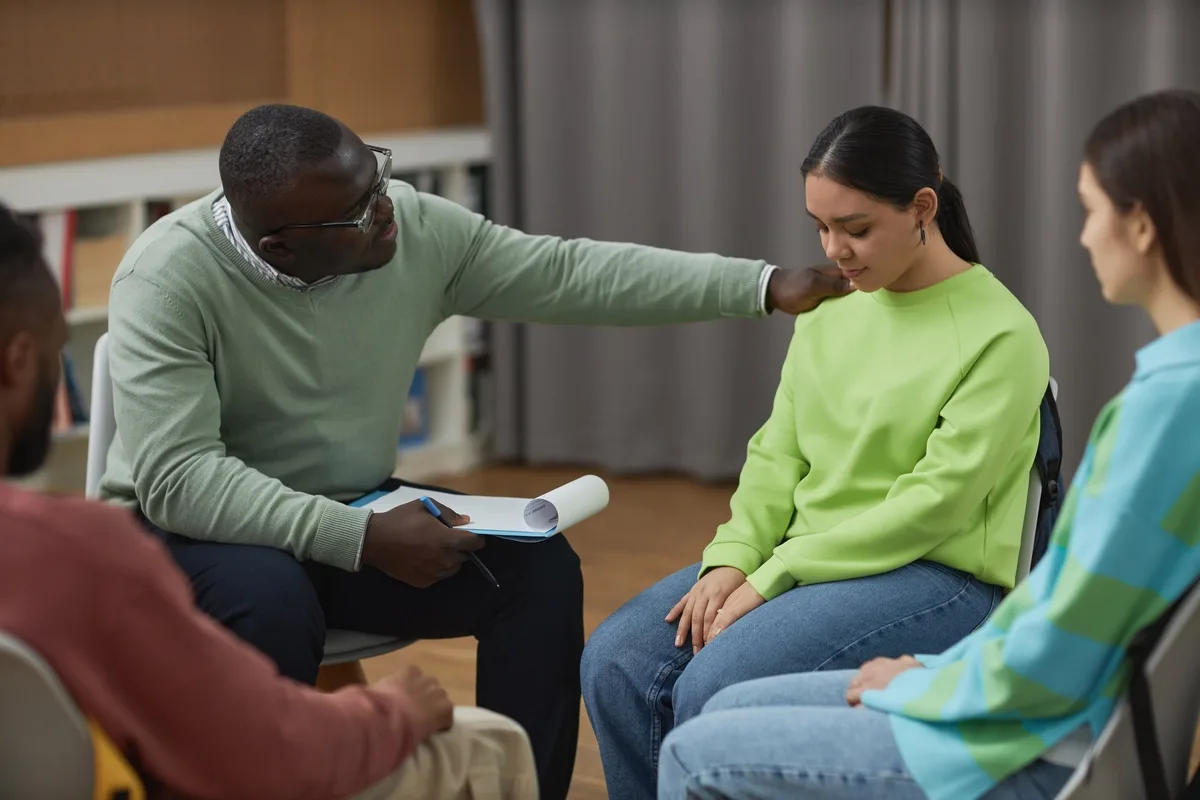24/7 Helpline:
(866) 899-221924/7 Helpline:
(866) 899-2219
Learn more about PTSD Rehab centers in Greentown
PTSD Rehab in Other Cities

Other Insurance Options

Optum

State Farm

Sutter

Excellus

MVP Healthcare

Providence

CareSource

Ambetter

WellPoint

Private insurance

GEHA

BlueCross

Sliding scale payment assistance

Meritain

Magellan

Humana
Beacon

Kaiser Permanente

Evernorth

Health Net


The Gilead House
The Gilead House is a Non-Profit rehab center located in Indianapolis, IN. The Gilead House speciali...

Four County Counseling Center
4C Health Solutions is a dual diagnosis behavioral health treatment center located in Kokomo, IN. Wi...

First City Recovery Center
Freedom is within reach at First City Recovery Center. Based out of Kokomo, Indiana, FCRC offers a f...

Community Howard Behavioral Health Services
Community Howard Behavioral Health Services offers the complete realm of behavioral care to treat th...






























AA – Alcoholics Anonymous
AA – Alcoholics Anonymous is a private rehab located in Kokomo, Indiana. AA – Alcoholics Anonymous s...














